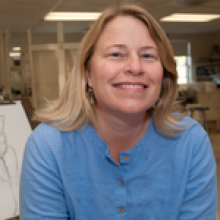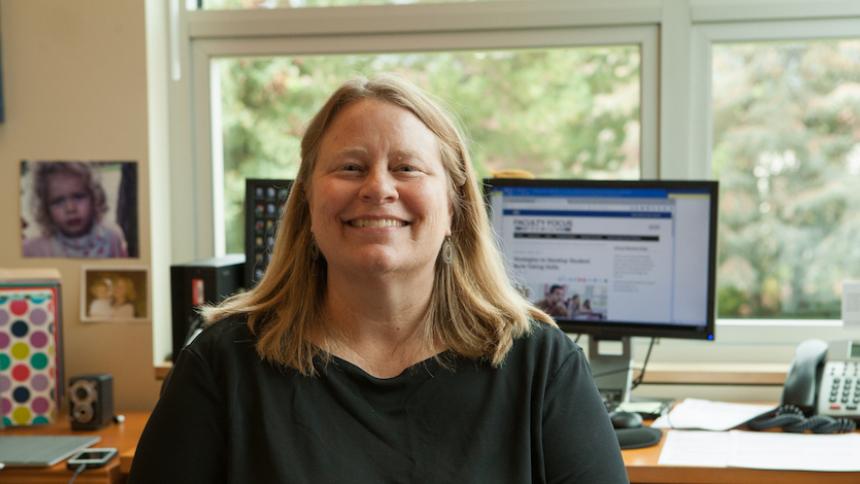Phillips has served as interim dean since July 2017.

Sarah Phillips, PhD
Office Hours
By Appointment
Course Information
At Pacific University, all faculty teach a variety of different courses. Typically, we do not use graduate teaching assistants, which means that your classes will be taught by professors and that you will have plenty of opportunities to get to know the faculty in your discipline.
Below I have listed some of the courses that I teach. We are always developing and trying out new classes, so the list may change now and then.
SOC 101 | Introduction to Sociology
SOC 102 | Social Problems
SOC 211 | Juvenile Delinquency
SOC 217 | Gender and Sexuality
SOC 300 | Introduction to Social Research
SOC 301 | Social Statistics
SOC 321 | Sociology of the City
SOC 355 | Consumer Society
SOC 325 | Hispanics in the United States
SOC 494 | Senior Research Seminar
SOC 495 | Independent Research
Education
Manchester College, Oxford University, 1996, Post Doctoral Summer Research Fellowship
Yale University, 1993-1995, Post Doctoral training in Health Policy/Health Services Research
University of Minnesota, Twin Cities, 1993, Ph.D. in Sociology
Whitman College, 1986, BA in Sociology
Published Works
Sarah R. Phillips, 2006, Modeling Life: Art Models Speak about Nudity, Sexuality, and the Creative Process. Albany, NY: SUNY Press
Sarah R. Phillips, 2006, "Designing Surveys: A Guide to Decisions and Procedures" Book Review, Teaching Sociology, Vol. 34, No. 1, pp. 87-89
Sarah R. Phillips, 2002, “Speaking of Sexuality: Interdisciplinary Readings.” Book Review in Teaching Sociology Vol. 30, No. 2, pp. 271-273
Sarah R. Phillips and Nancy Breaux, 1999, "More Than A Pervert." A feature-length documentary on the sadomasochism subculture in Portland, Ore. Premiered April 1, 1999
Sarah R. Phillips, 1995, "Turning Research Into Policy: A Survey on Adolescent Condom Use" SIECUS Report, Vol. 24, No. 1, pp. 9-12
Bradford H. Gray and Sarah R. Phillips, 1995, "Medical Sociology and Health Policy: Where are the Connections?" Journal of Health and Social Behavior. Extra Issue.
Sarah R. Phillips, 1994, "Asking the Sensitive Question: The Ethics of Survey Research and Teen Sex." IRB: A Review of Human Subjects Research. Vol. 16, No. 6, pp. 1-7
Sarah R. Phillips, 1991, "The Hegemony of Heterosexuality: A Study of Introductory Texts." Teaching Sociology, Vol. 19, No. 4, pp. 454-463
Sarah R. Phillips and Kent L. Sandstrom, 1990, "Parental Attitudes Toward 'Youthwork.” Youth and Society, Vol. 22, No. 2, pp. 160-183
Why I Study Sociology
I first became interested in studying sociology as an undergraduate. In a class, we read the story of Kitty Genovese, a young woman who, in 1964, was stabbed to death outside her apartment in New York City. The fact that she had been killed was, perhaps, unremarkable. But what lead to a sensationalized report in the New York Times and was the reason that I was reading about her death some twenty years later in college was remarkable. Investigators found that no fewer than 38 of Kitty’s neighbors had either heard or seen the attack -- which took place over half an hour -- and yet, none acted to defend her or stop the attack, even though at one point the attacker left and Kitty tried to drag herself to safety. As a student, I was shocked by what seemed to be such cruel indifference. I wondered what happened to those people that they either cared so little or were so frightened that they could not act? I told myself I would have been different. I would have done something. Then I started thinking about all the times that I had NOT done something. Certainly, I had never witnessed such an attack as that on Kitty Genovese, but how many smaller things had I failed to stop or interrupt? Had I always objected when I heard a racist or sexist or homophobic comment or joke? Had I always stepped forward when I witnessed behavior that I considered morally reprehensible? Had I averted my eyes and walked on when approached by a beggar or homeless person?
Today, I continue to study how we behave in groups and societies. What I learn is not always comfortable, but it is fascinating and it is, I believe, our best hope for becoming a better, safer, more egalitarian world. I hope that you will join me in my studies.
What I would tell a student considering a major in sociology:
Sociologists study what many others try to put out of their minds – racism, violence, poverty, sexism. I think that the best sociologists are optimists at heart. Although we often spend our time as skeptics and critics, we do so because we believe that something better is possible. So, I think that students considering a major in sociology should be people who genuinely care about other people, who are hopeful about the future, and who are not afraid of taking and voicing a contrary opinion. Don’t be afraid to ask the annoying question. Don’t be afraid to question the status quo. Don’t be afraid to care about the society in which you live. Yes, it takes some courage ... but you can, and should, do it.
Honor & Awards
2000 | Regional Arts and Culture Council, Center for Documentary Studies $1,500 to support annual documentary festival
1999 | Hewlett Grant, Pacific Productions Project. Won $18,000 award to develop a collaborative program between the social sciences and media arts to make documentaries using social science research methods.
1998 | Pacific University, Junior Faculty Award
1998 | Oregon Council for the Humanities, with Dr. Nancy Breaux $5,000 research award for "Mainstreaming and Identity Definition Within A Sadomasochistic Subculture"
1997 | Meyer Grant, Pacific University $2,500 to pursue research over the summer months "The Artist's Model: A Study of Negotiated Meaning in Ambiguous Context"
1996 | Oxford University Summer research fellowship, Manchester College
1996 | Oregon Campus Compact Grant $1000 to develop service-learning opportunities for students in local migrant labor camps
1991/1992 | University of Minnesota $10,000 Graduate School Doctoral Dissertation Fellowship University-wide competition for awards based on the research proposal, the potential for significant contribution to the field, academic performance, and professional promise
1991 | Martindale Award, Sociology Department, University of Minnesota. Annual award to a graduate student who has shown exceptional accomplishment, made progress toward the PhD, and made a contribution to the profession.
1991 | Teaching Assistant Award Sociology Department, University of Minnesota. Co-sponsored with the American Sociological Association, award for student achievement in Sociology.
1987/1988 | Sociology Department Fellowship, University of Minnesota



